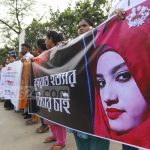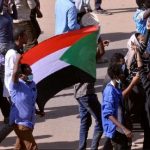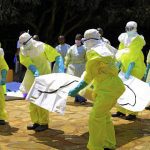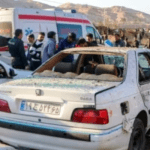Bangladesh has imposed a nationwide curfew to quell student-led demonstrations against government job quotas, with military and police monitoring the mostly deserted streets of the city, Dhaka.
According to latest reports, dozens of people were killed this week and that several thousand were injured.
The Dhaka Medical College Hospital received 27 bodies on Friday, bringing the death toll to 110 persons.
The authorities have said about 300 police officers have been injured, blaming the protesters for damaging public property and violence, and accusing opposition parties of instigating the unrest.
Soldiers set up checkpoints on Saturday, shortly after the government ordered a curfew to block the protests – which have been further fuelled by economic insecurity – that sharply escalated this week.
The government has been imposing a near-total internet ban on the nation of 170 million since Thursday as part of its crackdown on student demonstrators.
The ban was relaxed for two hours beginning at midday on Saturday to allow residents to shop for supplies.
There has been no official confirmation on when the curfew will be lifted, but it is expected to remain in place at least until early Sunday, reports say.
The protests have been ongoing for weeks, but there has been a sharp increase in violence in the past three days.
The demonstrations started, and were initially peaceful, after the High Court on June 5 ordered the reinstatement of a quota that reserves 30 percent of government jobs for family members of veterans who fought for the country’s independence from Pakistan in 1971.
But as the South Asian nation grapples with economic woes, including rising food prices and high unemployment particularly among the youth, many average citizens joined the protests.
The protests have been the largest threatening the government of Prime Minister Sheikh Hasina since her re-election for a fourth term earlier this year. She has cancelled planned trips to Spain and Brazil in order to deal with the fallout.
After the crackdown, the protesters have demanded accountability before agreeing to sit down with government representatives for talks.
The reinstatement of the quota was put on hold for one month while a state appeal before the Supreme Court was heard on August 7.
Along with activists and demonstration organizers, other opposition party leaders who had backed the student protestors have been taken into custody.
In a statement released on Saturday, India’s Ministry of Foreign Affairs said that it has made it easier for around 1,000 Indian citizens to return from Bangladesh and that an additional 4,000 students enrolled in different universities are now receiving consular support.












